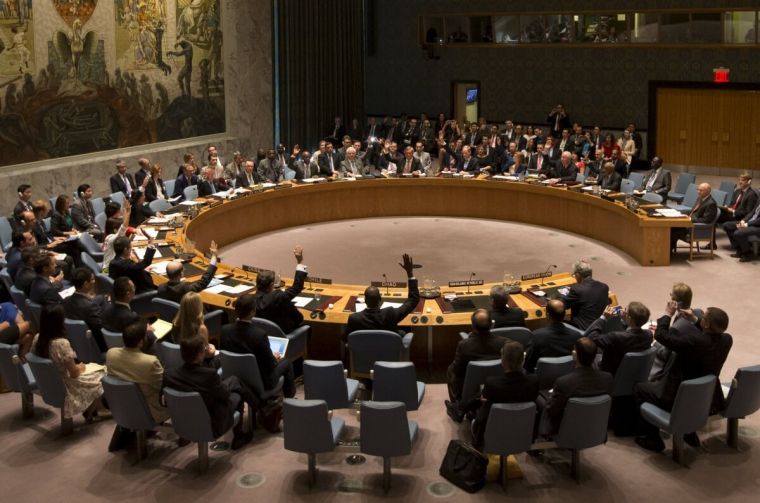Iranian and US diplomats clash as UN Security Council endorses nuclear deal

The UN Security Council has unanimously endorsed the world powers' nuclear deal with Iran, but instead of celebrating the momentous occasion, the American and Iranian ambassadors engaged in an exchange of angry recriminations.
Shortly after the vote, Iranian UN Ambassador Gholamali Khoshroo hit back at US Ambassador Samantha Power who brought up Iran's human rights record, Fox News wrote.
The US diplomat in turn expressed concerns over Iran's backing for terror proxies and called for the release of all unjustly held American prisoners.
Iran's ambassador then pointed at the US for causing instability in the Middle East, describing Power's comments as "ironic."
"The country that invaded two countries in our region and created favorable grounds for the growth of terrorism and extremism is not well placed to raise such accusations against my country," said the Iranian diplomat, who described the US' previous actions in the region as "feckless" and "reckless."
Power said in her remarks, which drew the ire of her Iranian counterpart, that the landmark nuclear accord does not change her country's "profound concern about human rights violations committed by the Iranian government or about the instability Iran fuels beyond its nuclear programme, from its support for terrorist proxies to repeated threats against Israel to its other destabilising activities in the region."
She called on Iran to set free three "unjustly imprisoned" Americans.
She also asked Iran to determine the whereabouts of Robert Levinson, a former FBI agent who disappeared in 2007.
"But denying Iran a nuclear weapon is important not in spite of these other destabilising actions but rather because of them," she said.
Meanwhile, some US lawmakers questioned the UN body's approval as they asked US President Barack Obama to stop Monday's vote and allow Congress to vote first.
"I don't know why they're going to the United Nations [first]," said Senator Ben Cardin, a Democrat member of the Senate Foreign Relations Committee.
"I think they should have gone to the United Nations after the 60-day review," he said. "They don't gain anything by doing it earlier."
Secretary of State John Kerry, on the other hand, defended the UN body's move.
"They have a right to [vote on the deal], honestly. It's presumptuous of some people to suspect that France, Russia, China, Germany, Britain ought to do what the Congress tells them to do," he said.
"They have a right to have a vote. But we prevailed on them to delay the implementation of that vote out of respect for our Congress so we wouldn't be jamming them."
The White House has already said that the Security Council's move will not take effect for another 90 days.
The UN Security Council has authorised measures that would lead to the end of sanctions on Iran, as well as a "snap-back" provision that would automatically return the stringent measures if Iran fails to hold its promises, wrote the Chicago Tribune.











